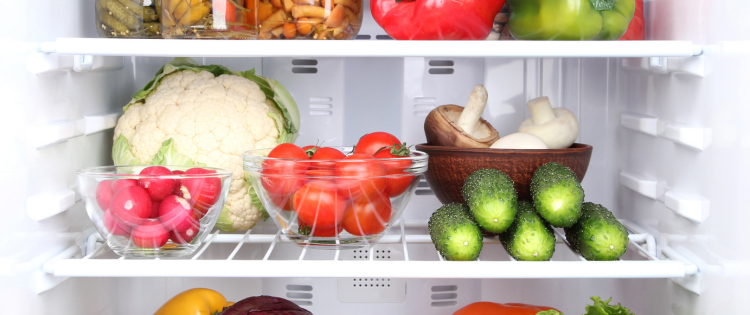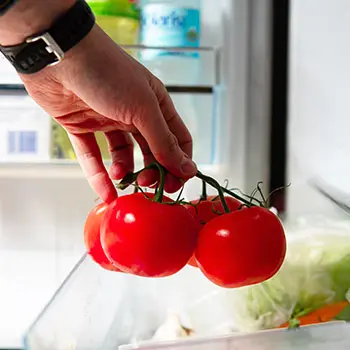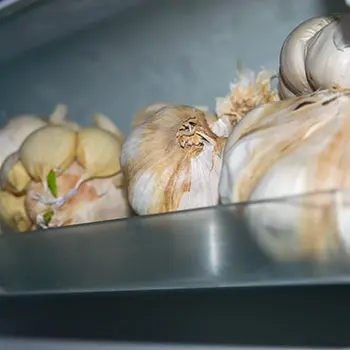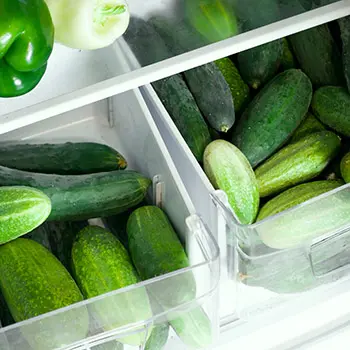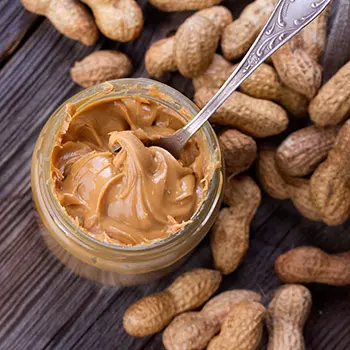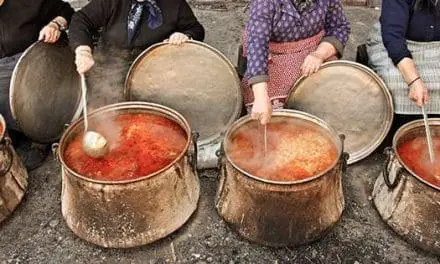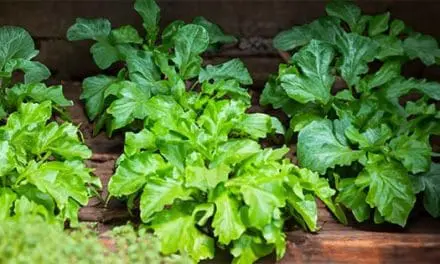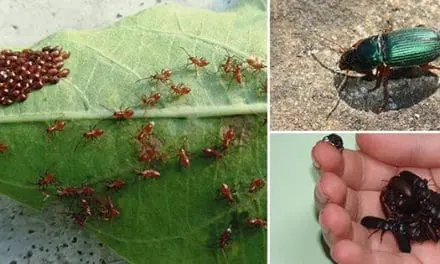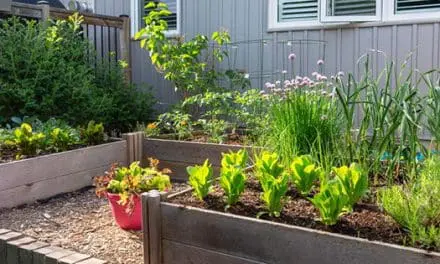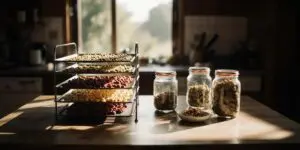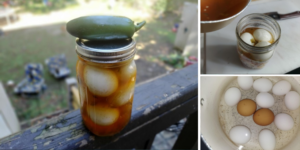Storing food in the refrigerator to keep it fresh is not always a good choice. While some foods, like carrots and cheese, last longer in the fridge, that’s not the case for all. The cold temperature and humidity inside the refrigerator can reduce the nutritional value and speed up the spoilage of certain foods.
So, let’s find out the ten foods that should never be stored in the refrigerator, even if you feel like doing it.
Tomatoes
Refrigerating tomatoes can cause them to lose their natural flavor and texture. The cold temperature alters the cell walls of tomatoes, making them less juicy. Additionally, it halts the ripening process, leaving them with bland flavors.
Where To Keep Them: Store tomatoes at room temperature, ideally in a cool, dry place away from direct sunlight. Placing them in a fruit bowl or on the countertop is best.
How To Make Tomatoes Last Longer: If you have overly ripe tomatoes, use them quickly or consider making a sauce or salsa. To extend their life slightly, store them stem-side down to prevent moisture from entering and causing rot.
Related: How To Grow Tomatoes Indoors
Onions
Onions thrive in a dry and ventilated environment. Keeping them in the fridge can make them soft and moldy due to excess moisture. Additionally, the cold can cause their sugars to convert to starch, resulting in a less flavorful taste.
Where To Keep Them: Reserve onions in a cool, dry, and well-ventilated place, such as a pantry. It’s best to keep them in a mesh bag or a basket, allowing air to circulate through them.
How To Make Them Last Longer: Keep onions away from potatoes, as the gases they release can cause both to spoil faster. If you’ve cut an onion, wrap it tightly in plastic wrap or store it in an airtight container in the fridge for a few days.
Related: Don’t Throw Away Your Onion Skins, Do This Instead!
Garlic
Garlic stored in the fridge is prone to sprouting and losing its signature pungency. The moisture in the fridge can also cause it to become moldy or rubbery over time. As a result, it tends to lose its taste and texture.
Where To Keep Them: Stock garlic bulbs in a cool, dark, and well-ventilated area, like a pantry. Store them in a mesh bag or a small basket, away from direct sunlight and heat. This is how they were stored before refrigerators came along.
How To Make Them Last Longer: Whole bulbs of garlic can last for several months when preserved properly. Once broken, individual cloves should be used within a week or two for the best flavor. Use a whole head of garlic when cooking a family meal, avoiding any leftovers while enhancing the flavors of your food.
Related: Never Buy Garlic Again!
Melons
Whole melons, like cantaloupe and watermelon, lose their sweet, juicy flavor when refrigerated. The cold temperature can cause the flesh to become mealy and less flavorful due to its high moisture content.
Where To Keep Them: Store whole melons at room temperature, out of direct sunlight. Once cut, melons should be wrapped tightly and stored in the fridge, but only for a few days. You can also dry them, which makes them last years. They serve as a scrumptious snack during winter.
How To Make Them Last Longer: To ensure your melons stay fresh, avoid washing them until you’re ready to eat them. This helps prevent the growth of mold and bacteria on the rind. Since they are watery, many microorganisms are easily attracted to them.
Cucumbers
Cucumbers are sensitive to cold temperatures, which can cause them to become waterlogged and pitted. The fridge can also accelerate their decay, resulting in a soggy texture. This is because cucumbers are over 90% water by mass.
Where To Keep Them: Put cucumbers at room temperature, preferably in a cool, dry spot. Set them aside from other fruits that produce ethylene gas, such as bananas and tomatoes, which can speed up their ripening.
How To Make Them Last Longer: To extend the life of cucumbers, wrap them in a paper towel to absorb excess moisture and store them in a breathable plastic bag if necessary. Consume them while they’re still fresh and crunchy, or turn them into pickles, which everyone loves.
Related: Can You Plant a Grocery Store Cucumber?
Nuts
Nuts stored in the fridge can absorb odors from other foods, altering their taste. Additionally, the moisture in the fridge can cause them to lose their crisp texture over time. The texture is irreversibly lost even if you leave them out after refrigerating.
Where To Keep Them: Place nuts in an airtight container in a cool, dark place like a pantry or cupboard. Keeping them away from direct heat and light will help preserve their flavor and freshness. However, it is best to consume them sooner rather than later.
How To Make Them Last Longer: If you live in a particularly warm climate, consider storing nuts in the freezer instead of the fridge. This will help them last longer without compromising their taste or texture. This is because nuts contain oils that easily degrade with fluctuating temperatures.
Peanut Butter
Peanut butter can become hard and difficult to spread when stored in the fridge. The cold temperature solidifies the natural oils, making them less creamy and more challenging to use.
Where To Keep It: Save peanut butter in a cool, dry pantry. An unopened jar can last for months, while an opened jar should be used within a few months for optimal freshness and health benefits.
How To Make It Last Longer: Stir your peanut butter occasionally to keep the oils evenly distributed. If you notice oil separation, give it a good mix to maintain its smooth consistency. It is important to keep it away from direct sunlight.
Potatoes
Refrigerating potatoes can cause their starches to convert into sugars, which, when cooked, transform into a sweet, gritty texture. The cold can also cause the skin to wrinkle and the flesh to darken.
Where To Keep Them: Store potatoes in a cool, dark, dry place, like a pantry or cellar. Avoid plastic bags, as they can trap moisture and lead to spoilage; instead, use a paper bag or a basket.
How To Make Them Last Longer: Keep potatoes away from onions and garlic, as their gases can cause both to spoil faster. Regularly check your potatoes for any signs of sprouting or soft spots and remove any affected ones to prevent the spread of spoilage.
Not all foods belong in the fridge. Keeping certain items, like tomatoes, onions, and potatoes, out of the cold helps them stay fresh and tasty for longer.
By storing these foods in the right places and following a few simple tips, you can avoid wasting food and enjoy your meals more. Remember, a little knowledge about food storage goes a long way in making your groceries last and keeping your kitchen running smoothly!
The Cheese Preservation Secret That Can Keep It Good at Room Temperature (Video)
How I Lived With No Fridge And No Heat For The Last 5 Years

